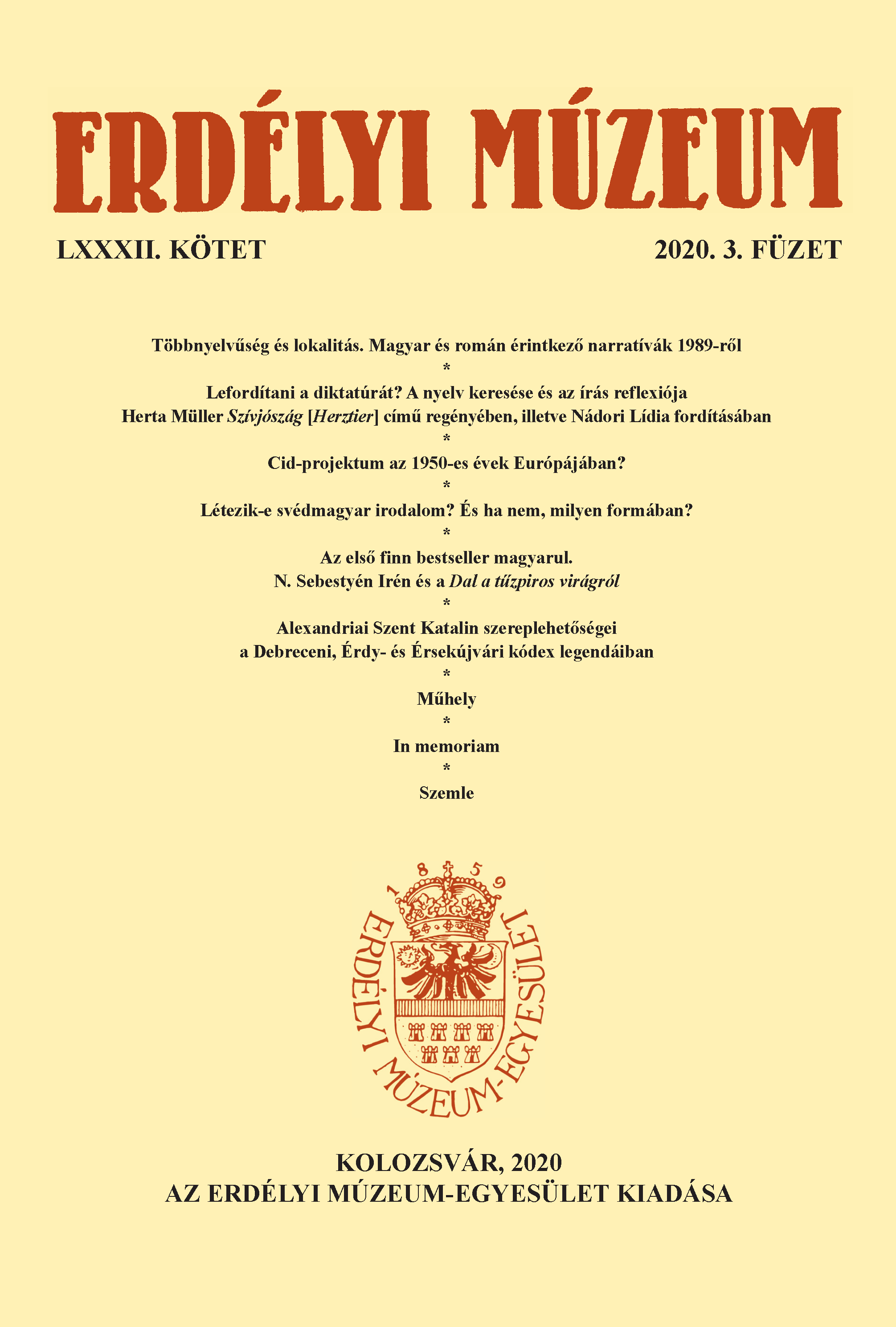Az emlékezés alakzatai Rozsnyai Dávid és Sámuel kalendáriumaiban
Forms of Memory in Dávid and Sámuel Rozsnyai’s Almanacs
Author(s): Kinga PappSubject(s): Cultural history, History of ideas, Hungarian Literature, 17th Century, 18th Century
Published by: Erdélyi Múzeum-Egyesület
Keywords: annotated almanac; memory; remembrance; life writing; writing habit
Summary/Abstract: The article presents the annotated almanacs of the Ottoman-language interpreter Dávid Rozsnyai. These annotations mark a series of events and deeds noted by the interpreter that fill in the blanks of his biography, as it appears in the rest of his ego-documents (journal, memoirs, autobiography), covering the years of his life for which we also have very few information from other sources. From 1708, in his almanacs start to appear annotations written by his son, Sámuel. At the beginning, the youngster uses the pages left blank to practice his writing and translation skills, to draw and imitate the printed text. Later on, Sámuel starts to write his own annotations and, eventually, he “translates” into writing the annotations dictated by his father, together with drafts of letters, probably also dictated by the senior Rozsnyai. These joint annotated almanacs not only mark the passing of time and the merging of memories, but also become instruments of memory and remembrance. The annotations also show the common practice of writing inside the family and its common mentality towards writing and familial ego-documents.
Journal: Erdélyi Múzeum
- Issue Year: LXXXII/2020
- Issue No: 3
- Page Range: 137-146
- Page Count: 10
- Language: Hungarian

